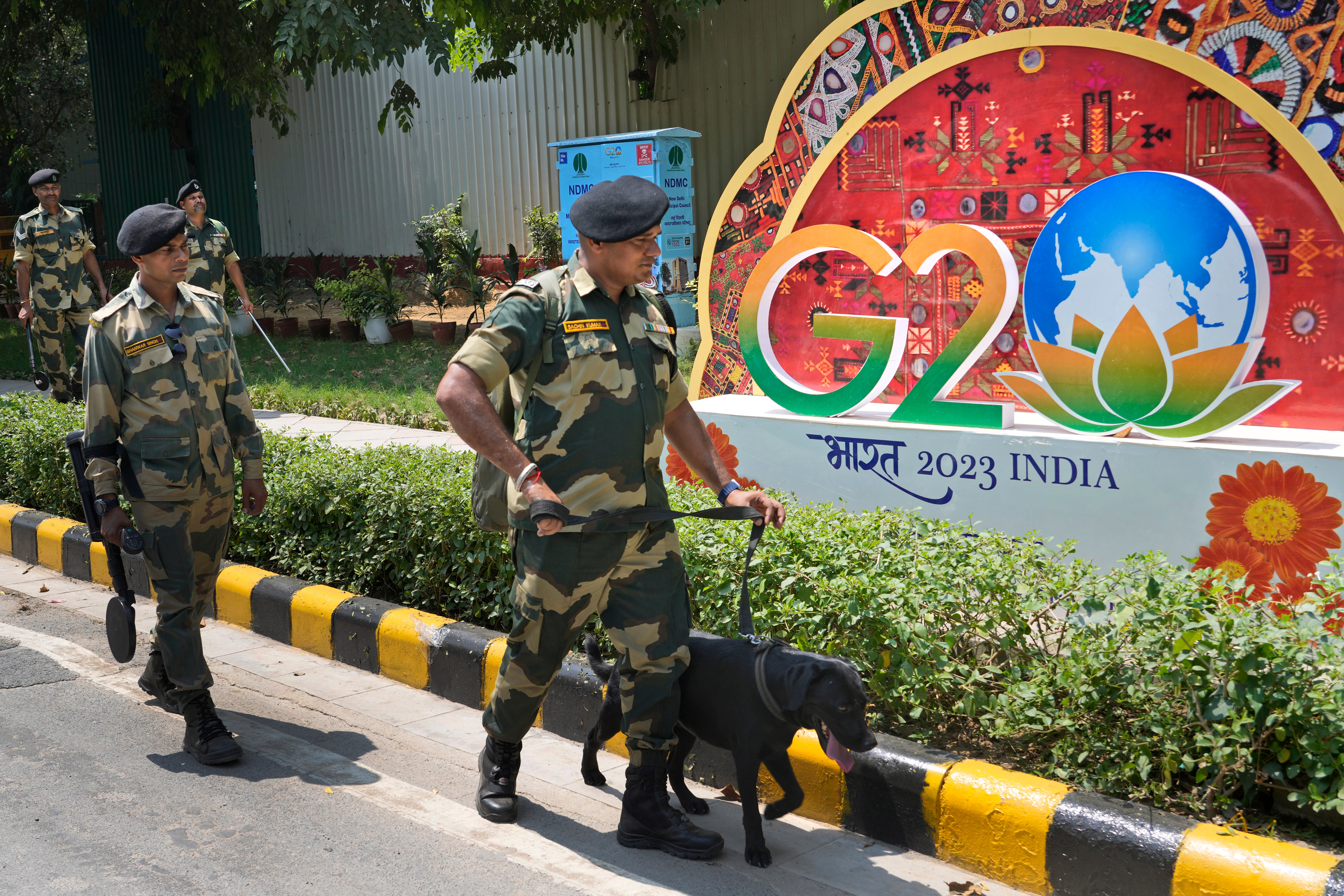Fears that climate crisis will be ‘collateral damage’ of G20 as focus trained on Ukraine and US-China tensions
‘If we are indeed one global family, we today resemble a rather dysfunctional one’
As leaders of the world’s largest economies gather in the recently flood-stricken city of Delhi this weekend for the Group of 20 summit, one of the most pressing challenges is finding common ground on the spiralling climate crisis.
Climate impacts are escalating globally in extreme flooding, wildfires and stronger cyclones. This week, the United Nations confirmed that the northern hemisphere had its “hottest summer ever”.
Activists and scientists are demanding that G20 countries - responsible for the vast majority of global carbon emissions - act faster and more ambitiously to drawn down on fossil fuels, ahead of the Cop28 climate summit in December.
UN Secretary-General António Guterres joined that call on Friday and urged the G20 to use the summit to send a strong message on climate by stopping licensing or funding for new fossil fuel projects and doing what it can to “keep alive” the global temperature limit of 1.5C.
But few signs of concrete progress have emerged from G20 meetings in recent years, particularly when it comes to cutting global emissions. And geopolitical tensions arising from the Russia-Ukraine war and escalating US-China tensions has cast uncertainty over a meaningful outcome this year.
“The G20 has been hamstrung by US-China competition and the Russia-Ukraine conflict,” says Li Shuo, senior global policy advisor at Greenpeace East Asia. “Climate change risks becoming collateral damage at this year’s summit in India.”
Russia’s war in Ukraine looms over the summit and could command much air-time due to its implications for inflation, and food and energy supplies and security around the world.
Russian leader Vladimir Putin is not attending the summit. Neither is China’s president Xi Jinping, at a time of tense relations with the United States over Taiwan independence, trade and national security which has had a knock-on effect on bilateral climate progress between the world’s two largest polluters.
“If we are indeed one global family,” UN chief Guterres said, in a nod to India’s summit theme, ”we today resemble a rather dysfunctional one.”
India, host of this year’s G20 summit, has made demands for stronger renewable energy goals and increased climate finance. However, its own dependence on coal has been a sticking point.
In July, the meeting of G20 energy and climate ministers ended without a traditional communique, indicating a lack of consensus on critical issues such as phasing out fossil fuels, finance, and clean energy.

What’s more, meetings in the run-up to the main event made little mention of coal. The Delhi summit shows no signs of being any different - despite G20 countries operating 93 per cent of global coal plants and accounting for 88 per cent of new coal construction.
Both India and China continue to increase coal production even as they ramp up renewables due to climate-driven extreme heatwaves that have tested both countries’ energy grids.
Climate experts say without a G20 agreement on phasing out fossil fuels including coal and halting new infrastructure, the G20 is blocking global climate efforts.
“As long as we continue burning fossil fuels, and as long as these countries, the G20, are continuing to have policies that subsidise fossil fuels, these events will become more and more intense,” Dr Friederike Otto, senior lecturer in climate science at the Grantham Institute, Imperial College London, said at a briefing on Thursday. “We have to stop burning fossil fuels.”
Climate finance is another hurdle as rich countries face mounting pressure to make concrete commitments of money to poorer nations bearing the brunt of extreme climate impacts.
Experts say the G20 presidency is an opportunity for Indian prime minister Narendra Modi to push the demands of the Global South.
“India now has a unique opportunity to influence other G20 nations to advance a sustainable, just, affordable, inclusive and clean energy transition,” said Sanjay Vashist, director of Climate Action Network South Asia (CANSA).
Mr Modi called on rich countries to commit more climate finance to “match their climate action ambitions” this week.
Trillions of dollars in investment is needed to adapt to worsening climate impacts and build out resilient, clean energy infrastructure in a warming world.
But experts say the signs do not appear encouraging in Delhi.
‘’It will be worrisome if there is no real and meaningful progress made on finance at the G20,” says Vaibhav Chaturvedi, fellow at the Council on Energy, Environment and Water.
“The markets need strong signals to move in the right direction. When countries sign on to a deal, it is the strongest signal for markets to move in that direction.”



Join our commenting forum
Join thought-provoking conversations, follow other Independent readers and see their replies
Comments